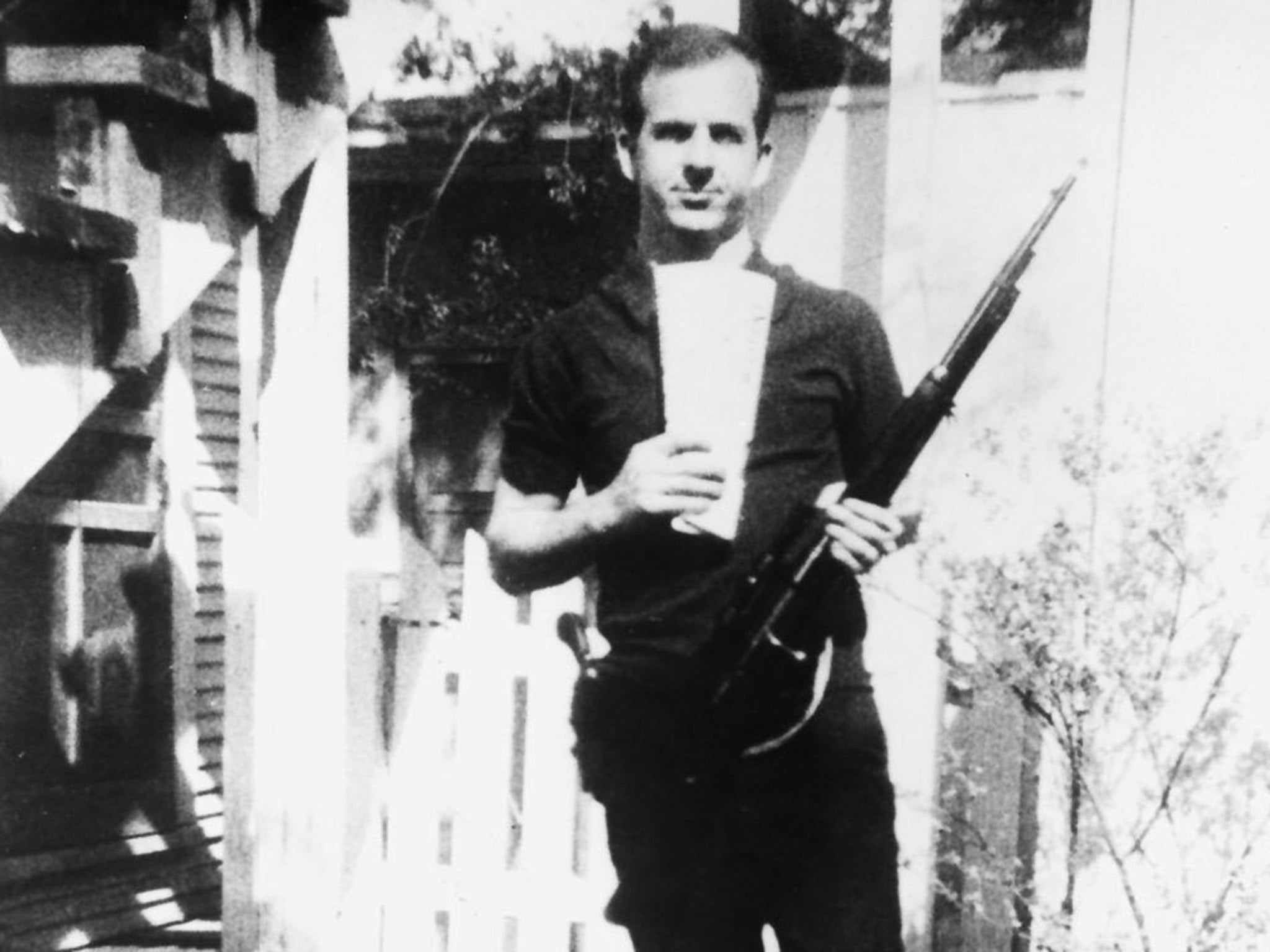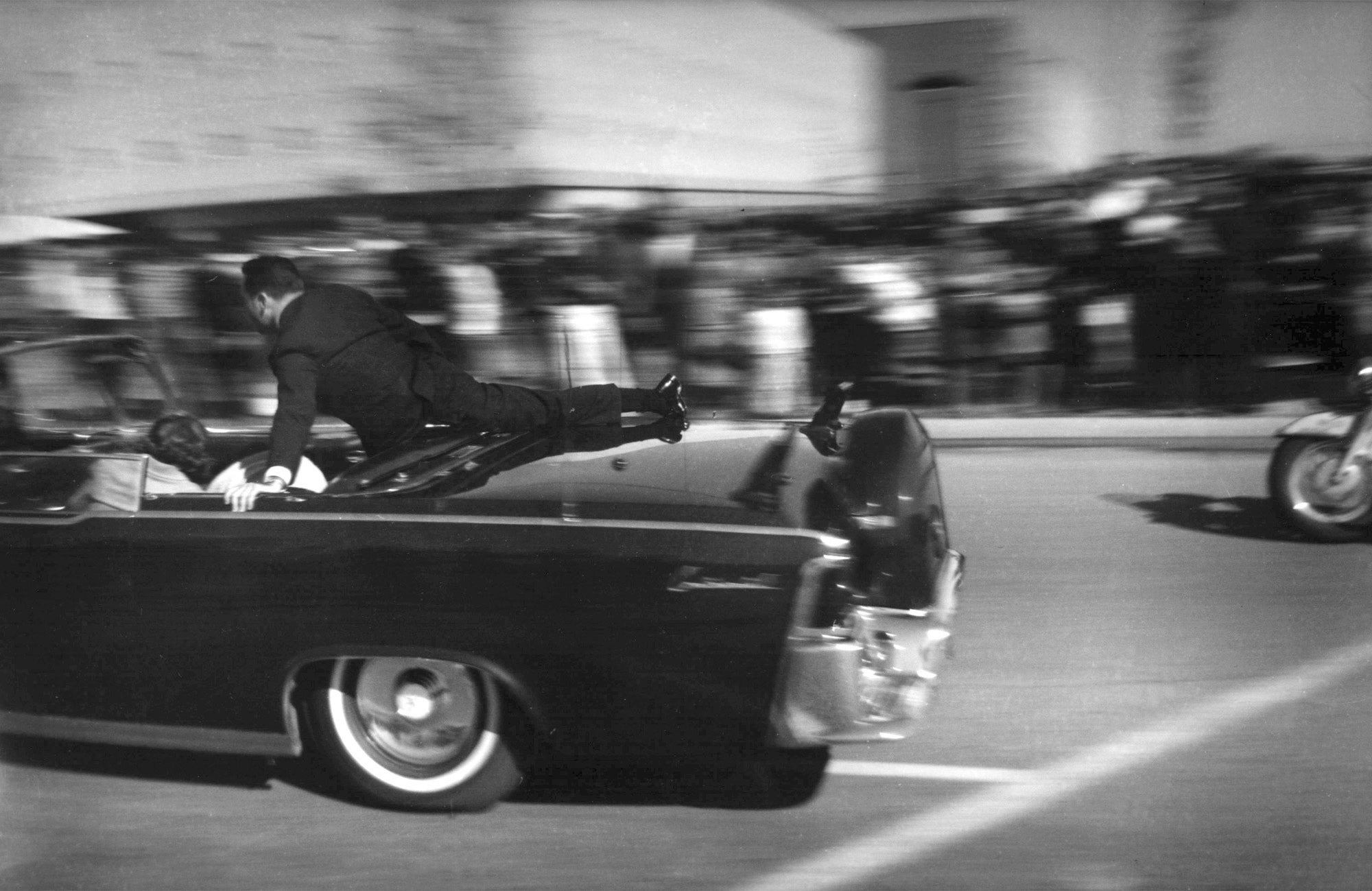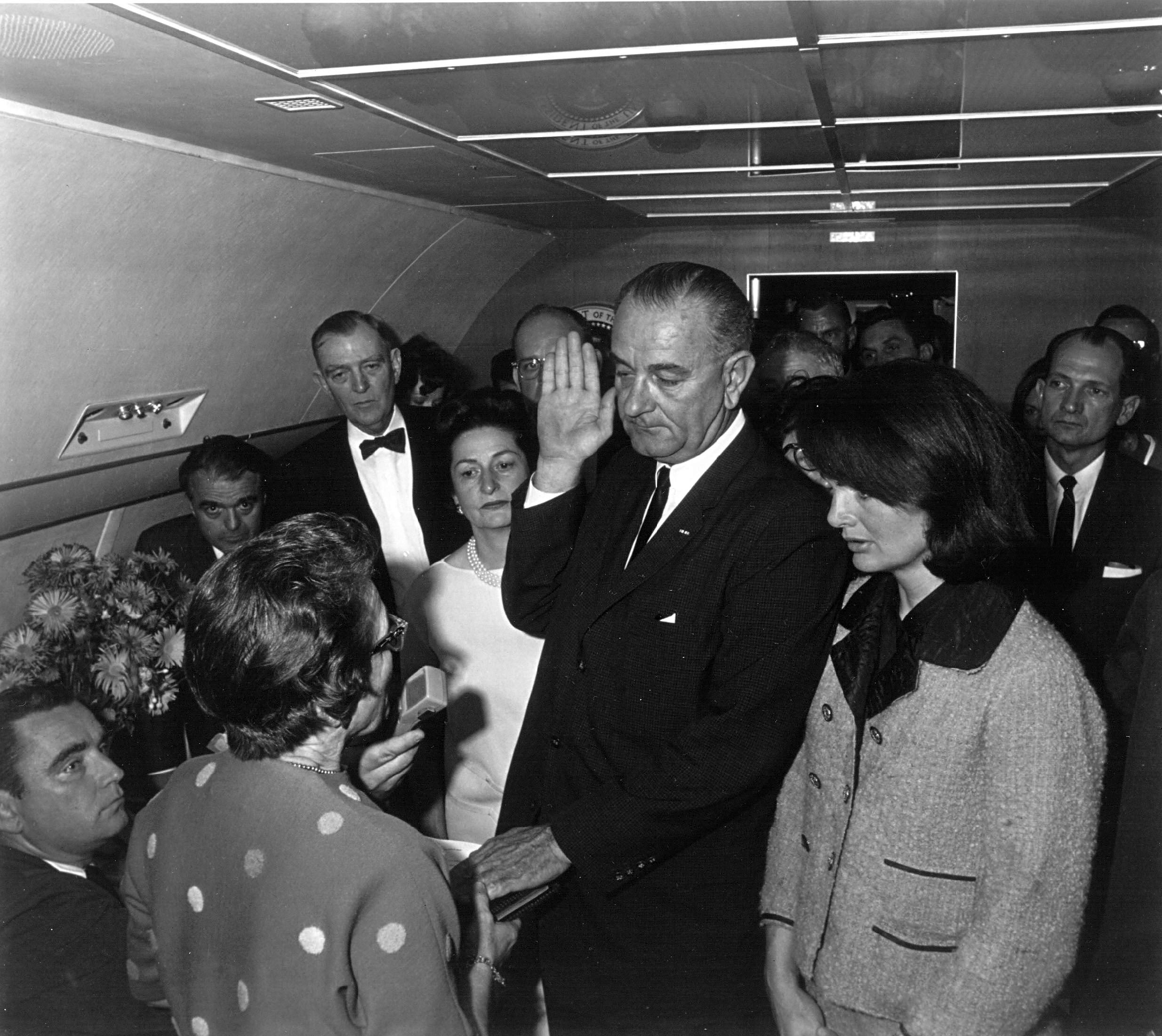Is Biden blocking the JFK assassination files over hidden bombshells?
‘Unless you have a very strong willed president ...they will defer to their intelligence people,’ one expert said. Andrew Feinberg writes


Your support helps us to tell the story
From reproductive rights to climate change to Big Tech, The Independent is on the ground when the story is developing. Whether it's investigating the financials of Elon Musk's pro-Trump PAC or producing our latest documentary, 'The A Word', which shines a light on the American women fighting for reproductive rights, we know how important it is to parse out the facts from the messaging.
At such a critical moment in US history, we need reporters on the ground. Your donation allows us to keep sending journalists to speak to both sides of the story.
The Independent is trusted by Americans across the entire political spectrum. And unlike many other quality news outlets, we choose not to lock Americans out of our reporting and analysis with paywalls. We believe quality journalism should be available to everyone, paid for by those who can afford it.
Your support makes all the difference.It’s been 57 years, 11 months, and five days since a sniper’s bullet consigned President John Fitzgerald Kennedy to the history books as the fourth American head of state to die at the hands of an assassin, and 29 years and one day since then-president George HW Bush signed a law requiring records related to his death to be made public within 25 years.
Yet four years after that deadline passed on 26 October 2017, more than 15,000 records remain hidden from the public.
For legions of conspiracy theorists who don’t believe that Lee Harvey Oswald — an experienced marksman trained by the US Marine Corps — shot Mr Kennedy and then-Texas Governor John Connally from the sixth floor of the Texas School Book Depository with his Mannlicher-Carcano rifle, the continuing redaction of those remaining records (a veil of secrecy that President Joe Biden extended in a memorandum released last week) has left open the possibility that some smoking gun document exists that will blow apart the official story as it has existed for more than a half-century.
Mr Biden’s memorandum sets deadlines of 15 December 2021 and 2022 for disclosure of the remaining records, and justifies further delay by citing the Covid-19 pandemic’s effect on agencies’ declassification work and the need “to protect against identifiable harm to the military defence, intelligence operations, law enforcement, or the conduct of foreign relations that is of such gravity that it outweighs the public interest in immediate disclosure”.
Members of the Kennedy family have decried Mr Biden’s decision to delay release of the decades-old files even further.

Former Massachusetts Representative Patrick Kennedy said: “I think for the good of the country, everything has to be put out there so there’s greater understanding of our history”. His cousin Robert F Kennedy Jr, called the memorandum “an outrage against American democracy”.
“We’re not supposed to have secret governments within the government,” said Mr Kennedy, whose father — Senator Robert Kennedy — reportedly did not believe that Oswald acted alone.
The continued secrecy may tickle the imaginations of the conspiratorially minded, but national security and classification law experts who’ve pushed for the remaining redacted records to finally see the light of day have a message for anyone who thinks they’ll at last be able to determine whether there was a second shooter or CIA involvement or proof for any of the myriad theories that have sprung up since that dark day in November: Don’t get your hopes up.
What’s taking so long?
That 1992 law signed by Mr Bush — the President John F. Kennedy Assassination Records Collection Act — was enacted by Congress out of frustration that the Freedom of Information Act gave executive branch agencies too much leeway to withhold records related to the Kennedy assassination, even after three decades, and because congressional records accumulated by the House Select Committee on Assassinations during its probe of Kennedy’s death were not set to be made public until 2029.
To get around agencies’ reluctance to declassify any of their records, the act created the Assassination Records Review Board, an independent agency with the power to collect records from agencies and overrule their classification decisions.
By the time the board folded in 1998, it had ordered the release of over five million documents, including nearly all records compiled by the Warren Commission (the presidential commission that determined that Oswald killed Kennedy and acted alone).
As the original October 2017 deadline for releasing the remaining 35,000 records approached, the archives began releasing more documents. Releases continued after Mr Trump announced on Twitter that he’d be allowing “the long blocked and classified JFK FILES to be opened”, though he allowed records to be withheld if agencies could show that disclosure would harm military operations. By 26 April 2018 (the deadline Mr Trump set for agencies to lobby for continued secrecy) only around 15,000 remained redacted.

So why the delay of up to more than a year?
Mark Zaid, a national security law expert who this week filed a FOIA (Freedom of Information Act) lawsuit seeking communications between the Archivist of the United States and Messrs Biden and Trump to establish “a more comprehensive and complete production of the historical record of coordination” between the archives and the White House, told The Independent that Mr Biden’s use of the Covid-19 pandemic to justify further delay has some validity.
He explained that because many of the federal workers responsible for reviewing records have been working from home until recently, they’ve been unable to access the classified systems they’d ordinarily use to view documents scheduled for release.
But Mr Zaid, who has been part of numerous court cases seeking release of records related to the Kennedy assassination, said many of the agencies that the JFK Records Act charged with reviewing and releasing their records by the original October 2017 deadline simply haven’t done the work they were required to do in order to make all their documents public.
“The review board went out of business in 1998, but the statute continued to require the agencies to review all of their assassination records under the standards of that Act — which are more stringent than FOIA, meaning less can be withheld — and process and release them,” he said. “Virtually none of the agencies did so between 2003 and 2018, and the archives didn’t push them … and the Congress did nothing little to nothing for oversight”.
“They’ve been supposed to be doing it for the last 20 years, they’ve been absolutely working on it for the last four, and yet they still didn’t make the deadline. And what I was told from senior officials behind the scenes, is that the CIA did nothing — just ignored them all … with most of these records, the CIA didn’t virtually do anything,” he said.
Asked what is probably left to disclose to the public after more than five decades, Mr Zaid posited that most of the records the Central Intelligence Agency wants withheld will disappoint those who are holding out for the sort of bombshell that would show government involvement in Kennedy’s death.
“Most of this does not even deal with the assassination itself,” he said, but are more than likely documents which could reveal sources and methods – potentially human sources – that the CIA still has some interest in protecting.
“Oswald went to the Cuban and Soviet embassies in Mexico City in September of 1963, and he was monitored by the CIA, and … the US got word that he was there. Part of it seems pretty clear that we had technical or human assets within these embassies, and if they were human there’s a good chance that a lot of these people are still alive today – if they were like 25 years old working in the Cuban embassy, they’re 83 now,” he said.
“If they don’t know we had technical surveillance back then, they might not know that we gained access to certain information that that actually still has relevance now … I’m talking about a small number of documents, but I’m not going to rule out that there could be legitimate reasons to withhold some of this information.”

Will President Biden allow records to remain secret beyond his December 2022 deadline?
While Mr Biden set a December 2022 for final release of all unredacted assassination records, Kel McClanahan, an attorney specialising in national security law and information and privacy law who previously served as an associate editor for the American Intelligence Journal, told The Independent that those looking to see everything by the end of next year shouldn’t get too excited.
Mr McClanahan explained that many of the records covered by the JFK Records Act would ordinarily never see the light of day because they would be protected by the National Security Act and other classification laws.
The review board, he said, “scooped up a whole bunch of records” that may have had only tangential connections to Kennedy’s death.
“As a result of this, you ended up with a whole bunch of records, that if they had nothing to do with JFK we wouldn’t even be having this conversation, because no one would be even entertaining the idea of releasing them because the intelligence agencies are extraordinarily protective … of anything that they view as revealing their sources and methods to doing anything,” Mr McClanahan said, offering the example of the CIA’s past reluctance to allow declassification of a document captured from Imperial Germany during World War I because it would have revealed a technique for making invisible ink that is a distant ancestor of a method currently utilised by the intelligence community.
Mr McClanahan predicted that Mr Biden would follow the bipartisan practice of deferring to intelligence officials’ wishes in keeping some records hidden, despite his December 2022 deadline.

“Unless you have a very strong willed president who will say: ‘I do not care because I am so pro-transparency’, they will defer to their intelligence people,” he said. He added that as time goes on and the Kennedy assassination fades from public memory, the clamour for new revelations will grow dimmer and dimmer.
“The farther you get from the assassination and subject matter, they’re going to keep arguing that whatever minimal national security, law enforcement, foreign relations interest that is served by withholding it is going to trump the increasingly diminishing public interest in disclosure about something that we wouldn’t even be talking about if someone hadn’t been excessively generous in deciding what was responsive to the JFK Act when it was first passed,” he said.
“I think you’re gonna keep having this happen … and at some point, Congress is going to have to step up and say: ‘no, we’re done – we’re not gonna allow the president to make any more claims like this.”
Mr Zaid, who has represented FOIA litigants with a wide range of views on the assassination, said the delay and continued secrecy only fuels the wildest of conspiracy theorists.
“Most people would probably understand if the government would articulate why [documents should remain secret], and … under the law, it is required to identify what the harm is, and why it exists. And if that could be described, I think most people are going to say: ‘okay, you know, that’s fine,’ but … to date, we’ve never seen any of these explanations as to why information continues to be withheld,” he said.
“So that just fuels more conspiracy theories, that, you know, this is a cover up, and they’re hiding something, and that’s the fault of the US government for not articulating clearly enough to the public what its’ concerns are.”
Join our commenting forum
Join thought-provoking conversations, follow other Independent readers and see their replies
Comments